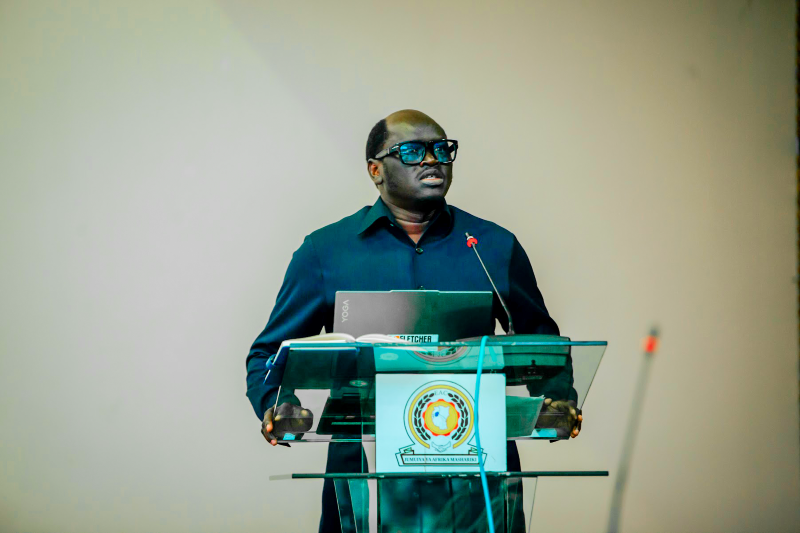-

Hear from Professor Monica Toft
Learn how Professor Monica Toft is shaping the study of global affairs and diplomacy at Fletcher.
Hear from Prof. Toft -

Explore Fletcher academics in action
Fletcher Features offers insights, innovation, stories and expertise by scholars.
Get global insights -
Get application tips right from the source
Learn tips, tricks, and behind-the-scenes insights on applying to Fletcher from our admissions counselors.
Hear from Admissions -

Research that the world is talking about
Stay up to date on the latest research, innovation, and thought leadership from our newsroom.
Stay informed -
Meet Fletcherites and their stories
Get to know our vibrant community through news stories highlighting faculty, students, and alumni.
Meet Fletcherites -

Forge your future after Fletcher
Watch to see how Fletcher prepares global thinkers for success across industries.
See the impact -

Global insights and expertise, on demand.
Need a global affairs expert for a timely and insightful take? Fletcher faculty are available for media inquiries.
Get in Touch
A Road for Safe Passage in South Sudan
Nicodemus Ajak Bior turned his GMAP experience into a plan to transform South Sudan’s public transport system.

By the time Nicodemus Ajak Bior F25 learned about Fletcher’s Global Master of Arts Program (GMAP), he was already engaged in social entrepreneurship. After serving as commissioner for the right of access to information in South Sudan – a national role to which he was appointed to by the president – Bior spent a year in New York as part of the Obama Foundation’s Scholarship Program at Columbia University. When he returned home, he turned his focus to South Sudan’s energy crisis, working to provide access to affordable solar power.
It was during this period that Bior began looking for ways to deepen his knowledge of public policy and global affairs.
“I have always been interested in the challenges that countries like South Sudan face as emerging states,” Bior said. “Then, a friend attended Fletcher. When he returned, he told me, ‘Nicodemus, you have to go to Tufts.’”
Balancing Professional Responsibilities with Academic Rigor
When weighing Fletcher’s programs, Bior was drawn to GMAP for its combination of rigor and flexibility. The hybrid structure allowed him to continue his professional work while pursuing graduate studies.
“I was drawn to GMAP’s comprehensive approach to global affairs and policy analysis,” Bior said. “But it was not just the professors or the lectures that were incredible, but the cohort itself. The program brings together people who have accomplished a lot in their fields and countries.”
It was within this diverse community that Bior developed his policy pitch – a core element of the GMAP curriculum where students craft practical solutions to pressing global challenges.
Confronting Infrastructure Through Policy
Bior knew he wanted his project to focus on South Sudan. Drawing on his own love for travel, he turned his attention to public transport.
“Transportation is one of the neglected sectors in my country,” Bior said. “You cannot comfortably use public transport. It is unreliable, often extremely expensive and unsafe.”
In GMAP, students refine their proposals with input from faculty, classmates and alumni. For Bior, this process strengthened his commitment to put his pitch in practice.
“I told my professors that I wasn’t just completing an assignment,” he said. “I intend to pursue public transport as an investor, but first I want to ensure we can provide cleaner, more accessible and affordable means of transport in South Sudan.”
Bior began mapping out key stakeholders essential to change. He identified government agencies, NGOs and community organizations to address the infrastructural and safety challenges to public transport.
“I feel proud of my project,” he said. “It helped me clarify the problem I want to solve, the stakeholders I will be dealing with and where the finances come from.”
A Responsibility to Bring Change Home
Since graduating, Bior has relocated to Arusha, Tanzania where he works for the East African Legislative Assembly. Even so, his policy project on public transport in Sudan remains central to his plans.
“I’m trying now to bring on board stakeholders – people I want on this journey with me, because it’s quite big,” he shared.
Looking ahead, Bior imagines a future in South Sudan where people can commute comfortably and safely from their places of residence, beginning with his own neighborhood, Juba.
“For those of us in policy, who’ve had the opportunity to be at places like Tufts, it is our challenge to be able to change things back home,” he said, “Even if we can’t transform everything overnight, we can at least make policies work for the local population.”
Read more about Fletcher’s Global Master of Arts Program and the program's policy lab.

